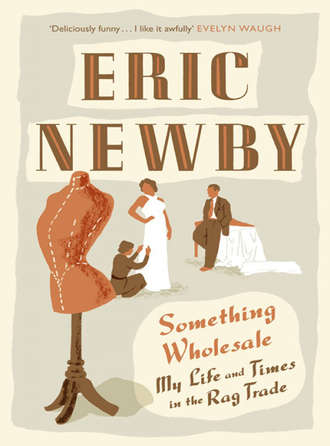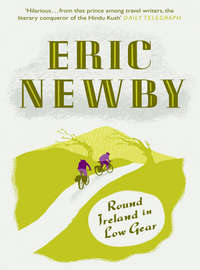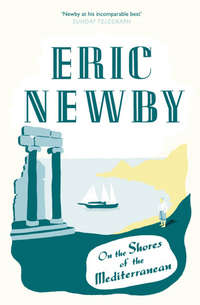
Полная версия
Something Wholesale
We were given tea by members of a more fashionable volunteer organisation whose roots were deep in S.W.7. They seemed more interested in the effect that they were producing on a number of men, who had not seen an English woman for anything up to five years, than in producing the victuals for which we still craved.
‘Do you know Jamie Stuart Ogilvie-Keir-Gordon in the Scots Guards? I think he was with you.’
‘No, I’m afraid not.’
‘Or Binkie Martyn-Sikes?’
‘No!’
‘How very odd that you shouldn’t have known him. He’s my second cousin.’
‘Do you think it would be possible for me to have something to eat?’
‘Oh, how stupid of me. It’s been so interesting talking to you I quite forgot.’
Whilst we were eating a Colonel entered. He was large, with a face as red as the tabs on his lapels.
‘Carry on, gentlemen,’ he said, genially. No one had in fact stopped. His costume was an unconvincing parody of a panoply which I now associated with a long-dead past. Neither breeches nor boots were as those worn by the terrifying but beautiful Eddie, our Adjutant at Sandhurst. Particularly the boots; they were downat-heel as though they had been worn over-much on urban pavements.
He sat himself down on the edge of one of the tables and tapped his awful boots with a little swagger cane.
‘Before you chaps move on from here,’ he said with a bonhomie which we found extremely distasteful, ‘there is just one thing I would like to say to you.
‘We realise here that things have been pretty rough for you on the other side. The Hun’s finished, now it’s our turn. I expect you saw some pretty rotten things – atrocities. I happen to be the Commandant of a P.O.W. Camp at—(he named a place somewhere remote in East Anglia). I’m also,’ he added, surprisingly, ‘a Member of Parliament. If you’ve witnessed any kind of atrocity in the last few years I would like you to report it to me, now. I promise you that whatever you tell me here will be brought home to the men in my camp. They’ll sweat it out.’
It had been a long day. I thought of the journey we had made through Belgium. There had been a shortage of rolling stock and we had entrained in carriages intended for the transportation of German prisoners. The windows were festooned with barbed wire. At the halts, which were numerous, small boys had thrown stones at us under the impression that we were members of the opposition. Who was to blame them? I thought of Germany – how I loathed pine trees and Alsatian dogs. I thought of the camp near Munich: the S.S. stripping Yugoslav men and women, kicking them round the compound in the snow and later singing harmoniously together in their huts, full of gemütlichkeit. I had seen a lot of things and this was too much.
Finally, an officer, who had been captured with the Rifle Brigade at Calais in 1940, got to his feet.
‘Colonel,’ he said, ‘I have two observations to make. The first is that you yourself are, without doubt, the biggest atrocity I have seen in the last five years. Secondly, the sooner there is a by-election in your constituency the better.
‘And in case,’ he went on, ‘you are now thinking of having me placed under arrest I will tell you that I have not yet been medically examined and I am probably quite insane – and that, Colonel, goes for everyone else in this room.’
There was a long, long train journey from Tilbury to Sussex without changing – a tour-de-force only possible in time of total war; the train stopping in the small hours of the morning at a disused platform deep in the bowels of Holborn viaduct.
‘Hasn’t been used since 1918,’ said the guard. He stood on the platform ankle deep in black soot, the accumulation of twenty-seven years, whilst those of us who lived in London argued whether or not to abandon the train and take taxis.
‘Can’t get a taxi in London after midnight – Yanks,’ said a gloomy looking Major with a handlebar moustache and little tufts of ginger hair growing out of his cheeks. ‘Had a letter from m’brother.’ At dawn the train crept into Barnes Station. I lived at Hammersmith Bridge, five minutes away by bus. It seemed ridiculous not to get out. I started assembling my extraordinary luggage. ‘Chap told me at Tilbury,’ the hairy Major said, ‘that they’re giving out special food and clothing coupons at Repatriation Centres.’
The train moved forward with a shattering jerk. Once more the house where I was born receded into the distance.
The Repatriation Centre was two Nissen huts in the middle of a wood somewhere in Sussex. It was staffed entirely by escaped prisoners of war, most of whom we already knew. In one hour dead they had us medically examined, documented and back at the station.
‘You get two months’ leave. Personally I don’t think that anyone will ever want to see you again,’ said the C.O. He had been in the same squad with me at Sandhurst. ‘The thing is,’ he said, slipping effortlessly back into the idiom, ‘you look so very, very idul.’
CHAPTER TWO An Afternoon at Throttle and Fumble
‘It’s not the slightest use hanging about here all day doing nothing,’ my mother said firmly. ‘You’re becoming demoralised.’ She had come into the bedroom where I was skulking unhappily for what she called ‘a little talk’.
My leave was not proving to be as pleasant as I had expected it to be. Most of the girls I knew were in jobs they refused to discuss, alleging that they were ‘secret’. (At that time it was fashionable to be in something secret even though you were issuing camp beds at the White City.) By day I had been forced back on the company of a succession of predatory widows, who drew false hope from my air of melancholy and who listened with awe to the rumbling noises made by a stomach which had been unable to stand the strain of liberation. My friends all seemed to be prisoners of war, busy like me nursing their private neuroses and we had so much in common that we used to cross the road to avoid meeting one another.
Even the Army seemed to have lost interest. Four days after I arrived home I received a letter from a remote camp in Ayrshire. It was signed by the Adjutant and ordered me to report there forthwith for posting. Someone who knew the place told me that it was in a bog ten miles from a railway station. I disregarded the letter. Every Friday for two months I received a letter from the Adjutant. It was always the same letter, except for the date and no reference was ever made to the previous ones. Finally they ceased altogether. I felt slighted. ‘I’m very worried about you,’ said my mother, sitting down on the edge of the bed. ‘I’ve been speaking to your father and we both think that you must do something.’
‘I am doing something.’
She wasn’t listening. ‘We’re sending you to Sheffield,’ she said, ‘with the Gown Collection. Mr Wilkins is ill.’ (Mr Wilkins was the Traveller.) ‘There’s a new Buyer at Throttle and Fumble. She hasn’t been in to see us this season and we can’t afford to lose the account.’
Here I must explain that my parents were in the wholesale business, what is known in the trade as ‘The Better End’. Twice a year, Summer and Winter, they made a collection of Models, based until the war came, on something that was supposed to have happened in Paris (what heavier industries call prototypes), and invited the buyers of the big department stores and smaller enterprises, called ‘Madam Shops’, to visit London and place an order for the coming season. But not all the buyers came to London and some of those who did would pass my parents by. It then became necessary to stalk them on their own ground and make a killing there – this was where Mr Wilkins came in, but Mr Wilkins was ill.
I was not in the business myself and knew nothing about it but now my mother had me cornered. I couldn’t think of any reason why I shouldn’t go.
‘You can take Bertha,’ she added, ‘to show the gowns.’
Bertha was a free-lance model my parents employed to display their outsize clothes so that the buyers could make their choice under battle conditions. I had first met Bertha some weeks previously at a fashion show at a London hotel at which our firm was ‘showing’. My mother had insisted on me attending it on the grounds that ‘it would cheer me up’. Bertha was very outsize indeed and grunted as she eased herself down at our table after the show. She had fat little feet of which she was inordinately proud and quite soon Bertha was massaging my ankles with them under the table, like a mare scratching itself against an old post. I was absorbed in studying the model girls employed by less-specialised firms, who looked like racehorses, and in wishing that we were showing small sizes. Before she left, unasked she wrote her telephone number on my programme.
‘I’ll do anything,’ I said, ‘as long as it’s not with Bertha.’
‘Then you’ll have to show them on the hangers,’ said my mother. She sounded vexed. ‘But they won’t look the same without Bertha. She’s such a willing girl.’
‘I know, that’s why I’d rather show them in the hand.’
‘I think it will do you good to get away, dear,’ my mother said, as she got up to go, triumphant as usual. ‘Oh, and by the way, a Mrs Bassett has telephoned three times already. I said you were asleep.’
Two days later I arrived in Sheffield, by train. I was wearing a pre-war suit that was so full of moth holes when I first put it on that it looked as though it had been peppered with shot. My mother had had it neatly repaired in the workroom with wool of an odd shade of blue.
It was raining steadily and although it was only eleven o’clock in the morning the sky was almost as dark as night. With me were four enormous wicker baskets, things called ‘skips’, which contained the Gown Collection.
‘Commercial?’ demanded the man at Left Luggage. He was a gloomy-looking, hollow-eyed fellow. If it was always like this it was difficult to see how he could have looked otherwise.
‘No,’ I said. At this stage I was sensitive about my amateur status. ‘Have it your own way,’ he said. ‘Cheaper if they’re Commercial. It’s all the same to me if they’re full of corpses,’ and gave me a ticket.
My father had written to Throttle and Fumble announcing that ‘Our Mr Newby will be calling on you,’ but no reply had been received when I left London, so I telephoned.
‘Throttle and Fumble,’ a voice said at the other end and I pressed Button A. There was a click and I was disconnected. All attempts to gain the attention of the operator failed.
There was an interval while I bought a magazine I didn’t want in order to collect some change and a further wait in a queue for a telephone.
‘Throttle and Fumble,’ said the voice again.
‘I want to speak to the Gown Buyer.’
‘Speciality Model Gowns, Model Gowns, Dream Girl Room or Inexpensives?’ the voice said, archly. Confronted with such a choice I wasn’t sure.
‘Well, if you’re not sure, I can’t connect you.’
‘Speciality Model Gowns,’ I said, guessing wildly.
There was a whirring noise and a new voice said, ‘Throttle and Fumble, Dream Girl Room, Good morning.’
‘I want Speciality Model Gowns.’
‘Just a moment, I’ll have you transferred.’ There was a succession of tocking noises and yet another voice said, ‘Sorry to trouble you, dear, will you transfer this call to Specialitys.’
‘Hallo, Speciality Model Gowns? I want to speak to the Buyer.’
‘I’m Miss Flagstone, the Under Buyer. Miss Trumpet can’t be disturbed. She’s having a Fashion Parade. Whom do you represent?’
‘Lane and Newby of London. My name is Newby.’ Put in this way it sounded ridiculous.
‘Oh yes, we had a letter about you. You should have been here earlier. We don’t see Travellers after eleven o’clock, and Miss Trumpet has done all her buying. I’ll have to speak to her. She’s just going to coffee. Are they nice dresses?’
‘All the dresses are very nice,’ I said.
There was an interval of five minutes which seemed longer. People were banging on the door of the telephone box.
‘Miss Trumpet doesn’t want anything unless you have something very special she could use in her parade.’
‘They’re all very nice.’
‘In that case Miss Trumpet says to come right away. Don’t bring a lot. And she doesn’t promise to buy.’
There were no taxis outside the station.
‘Don’t you know there’s a war on?’ said the porter, who was trailing after me with a trolley piled high with my wicker baskets. ‘Like Gol-dust. You need a Barrow Man.’
‘Barrow Man?’
‘Chap with a barrow to push your stuff up to Throttle and Fumble.’
‘How far is it?’
‘Couple of mile.’
At this moment, a man appeared, pushing a barrow. He was a shifty-looking little man with watery eyes.
‘Throttle and Fumble. Cost you a couple of quid.’
It seemed a lot of money.
‘Carry ’em yourself,’ said the little man, ‘it’s all the same to me.’
The immense load was transferred to the barrow. I rewarded the porter, I thought handsomely.
‘What’s this?’ he screamed. Other travellers waiting for the taxis that were now beginning to appear turned at the noise.
‘Five shillings.’
‘Five—shillings! What do you think I am a—coolie?’
‘I think you’re a—robber,’ I said with a sudden resurgence of spirit.
‘I’ll take a quid in advance,’ said the Barrow Man, who was listening to this exchange with interest.
I thought of hurrying on to Throttle and Fumble to announce my arrival, but terrible stories of lost collections, recounted by my parents, made me stay with the Barrow Man. At first I walked on the pavement a few paces behind him but this seemed rather snobbish so I descended into the gutter and marched a few yards ahead with my umbrella up. It was like a procession.
‘Throttle and Fumble,’ said the Barrow Man after an interminable journey.
The store was housed in an Edwardian building shaped like a hunk of cheese. It was difficult to see how human beings could be accommodated in the thin end of it at all. We came to a slithering halt outside one of the principal entrances at which a commissionaire in an absurdly pretentious royal blue uniform stood guard.
‘You can’t stop here. Round the back for travellers,’ he said. Then he looked at me again and said, ‘Oh, blimey!’
‘Frognall,’ I said, ‘what the devil are you doing here? And in that rig-out?’
Frognall had been one of our less-attractive acquisitions in the Middle East. He was a boastful, drunken fellow who enjoyed dropping dark hints to his girl friends about the nature of the operations on which we were employed. In Alexandria, far from war’s alarum, unless watched closely he went about armed to the teeth with fighting knives and a .45 Colt Automatic.
For security reasons our unit did not possess a badge; each man wore the badge of the regiment from which he had been seconded. Frognall invented one, a tasteful design of crossed tommy-guns over a submarine, wreathed with the names of places on the enemy coastline which had been visited by members of our organisation in the course of their work. He had it embroidered in the bazaar. Frognall had left us in 1942; the last I had heard of him was that he had deserted.
‘More to the point, what’re you doing?’ Frognall said belligerently, there had been little love lost between us. ‘Come down a bit, haven’t you?’
‘I’m selling clothes, Frognall. But what are you doing with all those medals.’ He was wearing the ribbons of the Distinguished Conduct Medal, the Military Medal and Bar, and the Croix de Guerre with Palm.
‘Gottem in ther Resistance.’
‘You had to work fast to do that.’
‘I’m Sarn-Major Bodkin now,’ said Frognall defiantly, ‘at Throttle and Fumble.’
‘Well, when I’m back in London I’ll remember you to the Commanding Officer. He’ll be glad to know that you’ve done so well.’
‘I shouldn’t do that,’ said Frognall, ‘towards the end I wasn’t on very good terms with the C.O.’
‘All right, Frognall, we’ll see. But just at this moment there’s a nice bit of work here, carrying these baskets upstairs.’
Speciality Model Gowns were on the third floor. The lift was too small to accommodate us. We puffed up the stairs with the first basket, butting the shoppers with it, through the restaurant where the customers were gorging themselves on bilious-looking cakes, through the Dream Girl Room and into the Department.
At first I thought that it was being demolished. The showroom was full of workmen sawing wood and hammering away at something that looked like a packing case for an obelisk. One wall was stacked with little gold chairs.
‘STOP!’ said a great voice.
It came from a woman more than six feet high with hair dyed bright orange. I had never seen anything like her in the whole of my life. She was like a Valkyrie. The remains of such women are occasionally discovered, together with their consorts, decked with amber beads, stretched out in the bottoms of Viking burial ships.
‘STOP!’ she said again, even louder. ‘Where do you think you’re going with that basket. SERGEANT-MAJOR, PUT IT DOWN!’
We let it fall in terror.
‘Good morning,’ I said, ‘Miss Flagstone?’
‘I am not Miss Flagstone. I am Miss Trumpet, the Buyer. Who are you?’
‘I’m Newby of Lane and Newby of Flagstone … I mean London.’
‘I know nothing of you. I never see travellers in the Department.’
‘Miss Flagstone …’
‘She had no right to tell you to come here. Can’t you see that we’re having a Fashion Parade? The Compère’s arriving at any moment.’
‘I thought you might like to see something on a hanger.’
At this moment a sound like someone keening over the dead rose from a little cubicle and a downtrodden little woman in a scurfy black twin-set came racing on to the floor, wringing her hands.
‘Miss Trumpet! Oh, Miss Trumpet! He can’t come! He’s broken something!’
‘Who can’t come? Pull yourself together, Flagstone.’
‘The Compère, Miss Trumpet. He slipped on a marble staircase leaving the B.B.C. He’s in the Middlesex Hospital. They’ve just telephoned.’
Miss Trumpet had not battled her way to the buyership of Speciality Model Gowns for nothing. The qualities that had got her there now stood her in good stead.
‘I will not have a Commère,’ she said firmly. ‘We must have a man.’
‘Young Mr Fumble?’
‘Young Mr Fumble is not fit for anything after lunch, as you should know, Flagstone.’ Miss Trumpet’s eyes were boring into me.
‘You’ve got a fine, deep voice,’ she said. ‘If you’ll do it I’ll show some of your models.’
At three o’clock the Parade began. Great changes had taken place since the morning. The platform was tastefully draped and banked with fern and chrysanthemum. In the background a three-piece orchestra from the tea lounge scraped away industriously. Three hundred chairs groaned as three hundred women leant back to enjoy something for nothing.
‘And this,’ said Miss Trumpet, towering over the microphone, ‘is Mortimer Fell of the B.B.C., who has come specially from London to compère our show … Over to you, Mortimer,’ she ended, roguishly.
I picked up the script. ‘The theme is “Back to Normal”,’ I said. All through what would normally have been the lunch hour I had rehearsed it. During this time Miss Trumpet had displayed the gentler side of her nature. I soon came to the conclusion that being cosseted by Miss Trumpet was an even more macabre experience than meeting her in the normal way of commerce with, as it were, the gloves off.
Almost at once the first model girl came prancing on. ‘Number One, FROU-FROU,’ I continued, looking down from my eminence on the platform on to the bald head of young Mr Fumble, asleep in the front row. ‘A neat little number, isn’t it? Suitable for COCKTAIL WEAR OR GOING ON SOMEWHERE AFTERWARDS. (What the devil did this mean?) Notice the detachable halter and CLEVER BEADING.’
FROU-FROU was followed by a terrifying looking woman of ample proportions with blue hair. A vintage version of Bertha. ‘Number Two, Mrs Whistle shows TWO CIGARETTES IN THE DARK, a gown suitable for the woman who is a teeny bit larger.’ (I recognised one of our own productions here.) And so on to Number Seventy. Number Seventy was the Wedding Group. This had been carefully rehearsed. The string orchestra was to break into Mendelssohn and rose petals were to be scattered. It was to be the climax of the afternoon at Throttle and Fumble.
Number Sixty-Nine, SOIXANTE-NEUF, went loping off. ‘Number Seventy,’ I said, ‘GREAT DAY.’ The band plunged into the Wedding March; but the Wedding Group failed to appear.
I tried again. ‘Number Seventy, GREAT DAY.’ Nothing happened. The audience began to twitter. From behind the curtains came a gentle mooing sound. There was still one more line of script. I read it.
‘… And that brings us to the end. Throttle and Fumble hope you have enjoyed seeing these lovely things as much as they have enjoyed showing them.’
And young Mr Fumble still slept on.
‘Miss Trumpet has gone home,’ said Miss Flagstone, much later, as we sat together drinking tea among the ruins. ‘She was most upset about the Wedding Group. She’s not coming again this week.’
I asked her what had happened to it.
‘Never you mind,’ she said, darkly.
‘Did Miss Trumpet say anything about keeping any of the dresses?’
‘No.’
‘But they’re all covered with lipstick and the velvet one’s split up the back.’
‘Ah,’ said Miss Flagstone, ‘That Mrs Whistle, I always said she was a slut.’
Next day I sent a frantic telegram to the Adjutant in Ayrshire asking to be posted abroad.
CHAPTER THREE Life with Father and Mother
Lane and Newby Limited, the family business of which my father was the patriarchal head and my mother a director was a commercial venture of a sort that is now extinct. By the time I visited Throttle and Fumble on its behalf in that first damp Autumn after the war nothing quite like it existed in the western world. Perhaps on the peripheries, in the coastal towns of Asia Minor and the Levant, a blurred pastiche of it might still be found in those agencies with British names managed by Armenians wearing grey flannel suits and club ties. In England it was probably unique.
It was unique because it was one of the first establishments of its kind – and now it was the last. In the nineties, when my father had gone into partnership with Mr Lane, their joint venture had been a novel one. At that time the idea of expensive women’s clothes being ready-made was almost unheard of. That a store buyer could be persuaded to visit premises situated in the West End of London, far from the vast, wedge-shaped warehouses that hemmed in St Paul’s Cathedral seemed a remote possibility. Nevertheless they prospered.
In 1945 Lane and Newby, by then shorn of much of its prosperity, occupied a house with an elegant eighteenth-century façade in Great Marlborough Street. The Partners had moved there in the Twenties when Regent Street had been demolished to make way for the buildings that make it such a dreary, open ditch and which are now being dwarfed by even more outrageous structures. When they bought the lease Great Marlborough Street housed solicitors and firms that sold sheet music. It had not yet become the epicentre of that spectacular convulsion, the wholesale fashion industry, a dwarf counterpart of Seventh Avenue.
Mr Lane, the senior partner, was no more. The dissolution of the partnership and his departure from the firm had been preceded by an orgy of litigation from which the Newby faction had emerged in a state of near-financial collapse.
I remember seeing Mr Lane on one occasion only; when, as a small boy, I had been on my way to Wimpole Street to have a gumboil lanced. With his great beard he had looked to me like Moses.
There the resemblance ended. For Mr Lane was a man of uncertain tastes. His exploits were always referred to in hushed whispers. In my presence words descriptive of practices of which, at the age of seven, I had not the slightest inkling, were spelled out laboriously by my parents in order to render them doubly unintelligible.








